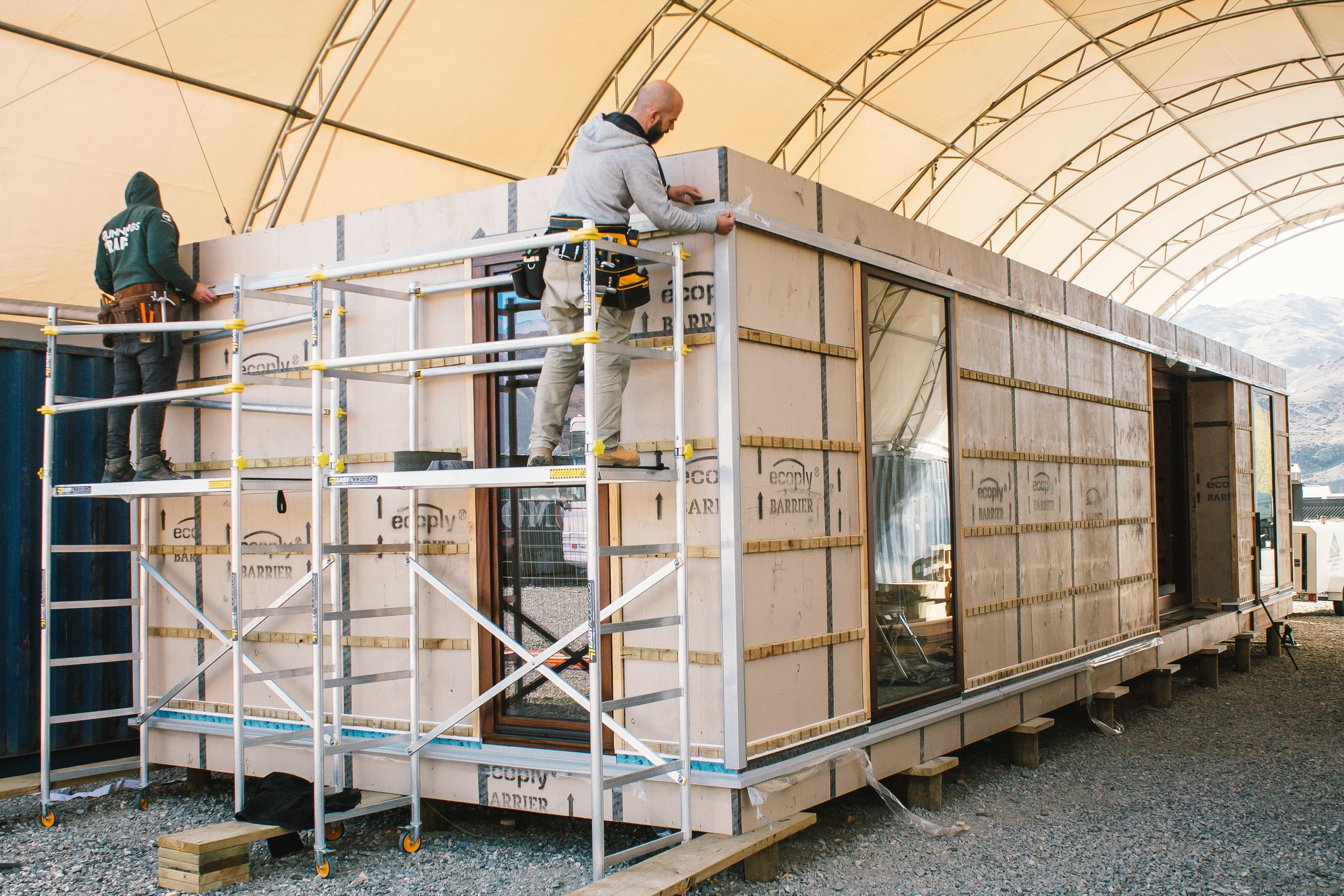What does modular building mean?
Linear by Hofmans Architects Ltd
Modular, prefabricated or offsite are similar terms that are being used more frequently nowadays all around the world in the building industry. But what do they mean and what are their advantages?
In this short article, we're going to summarise it for you and explain how this way of building can enable more housing opportunities with great designs at reasonable pricing.
Basically, it involves constructing sections or modules away from the building site (check the following photos in the article to see what we mean by a module that has a similar size to a shipping container ). Then deliver them to the intended site and where the installation of the prefabricated modules is completed and they can be placed side-by-side, end-to-end, or stacked, allowing for a variety of configurations and styles.
The term "modular" has at least two meanings. One means building in elements or "modules" and one means to design an idea in repeatable parts (may not end up being built, simply a design approach like Lego). In this case, we're talking about the first one.
Building away from the final site is an important future-focused way with the following advantages: cost optimisation, waste minimisation, safer construction (health & safety), and better quality control over the buildings.
Cost optimisation
The construction of the modules can happen simultaneously with the site and foundation work, allowing projects to be completed in a shorter term than the traditional construction.
Most of the process is completed inside a factory or covered yard, which mitigates the risk of weather delays. Saving time means saving money, creating a faster return on your investment.
The Modulo Showhome in progress
In addition, many modular companies like ours offer a range of smart and compact prebuilt sustainable homes, offices, studios and sleepouts which avoids going through the whole design process over and over again. (Check out our website)
Waste minimisation
Working in a controlled environment waste is reduced by recycling materials, onsite sorting, designing out the waste from the early stages, controlling inventory and protecting the building materials.
Safer construction
Working under a roof in a safe environment reduces the risks of accidents and exposure to extreme weather such as rain, snow or long days working under the sun, which affects the health and safety of the workers.
Better quality control
By building away from the final site faults can be identified early and easily managed and addressed. The potential for high levels of moisture being trapped in the new construction is eliminated and the quality of the whole structure is easier to control.
Vulcan Cladding by Abodo
Buildings that are driven by design
Modulo connects mid-range home-buyers with top-end architectural practices. The unique designs of our buildings emanate from a range of top New Zealand architects and the platform was created for these designs and for open-source designs that are in constant evolution.
Modulo is committed to team up with your architect or designer to adapt your project to be built in a modular way. Offsite does not mean that every module is the same. Every person has their own needs and preferences and we believe that design plays a huge role in this.
The importance of architectural design is often underestimated. Good architecture enhances our daily lives in ways that we wouldn't necessarily expect. Architects add art, creativity, and beauty to our daily lives in ways we don't expect. They know the ins and outs of how to design your favourite little alcove or how to give your building the best view. (4 reasons why good architecture is important).
Kereru by Coll Architecture
Combining all of these advantages and building according to the healthy home standards from the NZGBC will definitely help to overcome the housing shortage in New Zealand and raise the bar of the quality of the buildings across our country.
References: Offsite NZ formerly Prefab NZ which is a non-profit membership organisation that inspires, educates and advocates for innovative excellence in offsite design and construction in New Zealand. Why prefab?
If you want to learn more about Energy Efficiency and Healthy Homes check out our other articles or head to NZGBC's website.
Thanks for reading!






